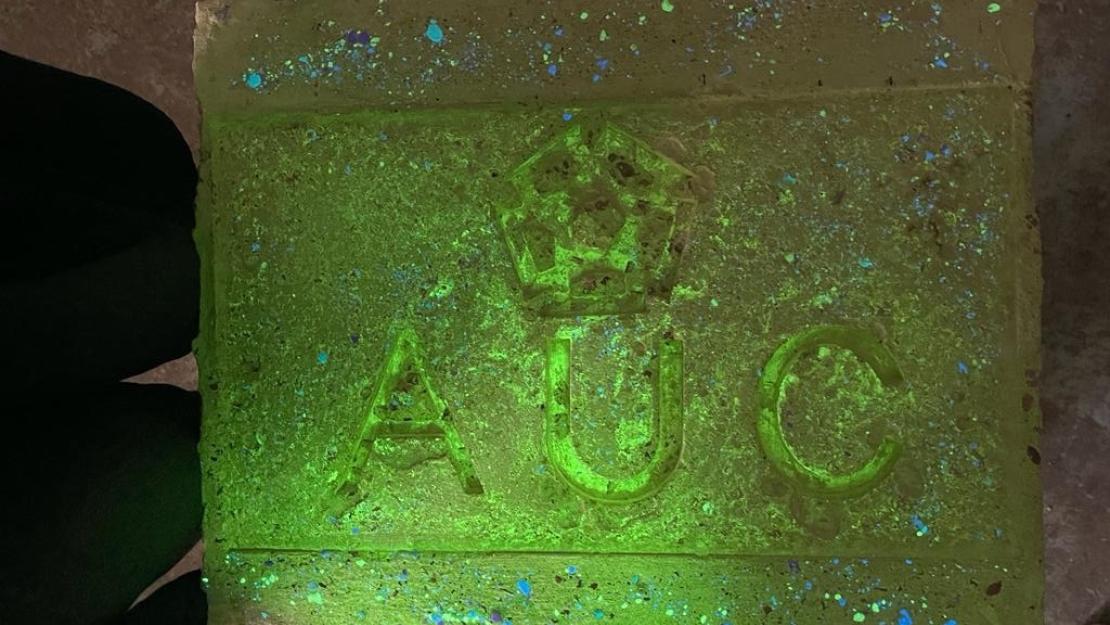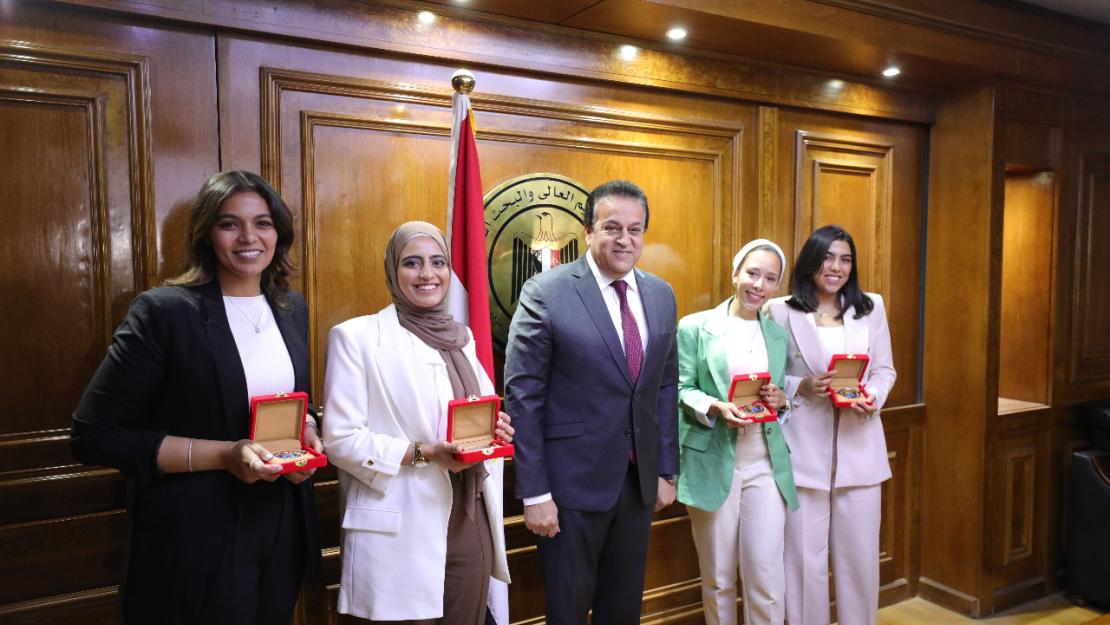American University of Cairo Students Develop Glow-In-the-Dark Concrete
Four undergraduate construction engineering students at the American University of Cairo (AUC) have created a self-luminous concrete, which can absorb sunlight and emit light after dark. Students Fatma Elnefaly, Mayar Khairy, Zainab Mahmoud, and Menna Soliman had sustainability in the forefront as they began their thesis graduation project. Their goal was to find a way to save energy and bypass traditional energy consumption while improving the country’s infrastructure.
“Sustainability is a main theme in this project. This new concrete possesses better appearance and helps reduce the massive amount of energy used in lighting highways or providing illuminated street signals or signs needed for safe rides,” Mohamed Nagib AbouZeid said, professor of construction engineering at AUC, and supervisor of the students’ graduation project. Beyond the sustainability measures, AbouZeid added the glow-in-the-dark concrete would also enhance safety on long stretches of roads and highways in the country.

Photo credit: The American University in Cairo
Zainab Mahmoud, explained one of the many uses for the self-luminous concrete includes lighting roadways and bike paths and foregoing the use of electricity in those spaces, an opportunity that is in congruence with Egypt’s sustainability goals. “The utilization of this material in Egypt in such a context will reduce heavy reliance on electricity and accordingly be an active step towards fighting climate change and saving the environment, which is one of the main goals of COP 27 that Egypt will be hosting this year.”
“The idea of our research originated from wanting to make such an integral construction material like concrete more sustainable and environmentally friendly in both its creation and function,” Mahmoud said. The team understood the harsh environmental impacts associated with concrete and decided to look into new ways to make use of the common building material.
Fatma Elnefaly described the most challenging part of their development process was selecting, obtaining and testing locally used materials in order to ensure they were best meeting the goal of their project. “We needed to test the luminous effect of the selected materials and its effect on the mechanical properties of concrete,” she said.
“This research requires more experiments to provide reliable conclusions to plenty of crucial queries that remain to be answered,” Mayar Khairy said, in regards to the relatively novel research subject.
Earlier this year, the students showcased their work at the Transportation Research Board 101st Annual Meeting in Washington, D.C. Menna Soliman explained that attending the conference allowed them to engage with industry experts and receive valuable advice and recommendations on how to turn their project into a product that can be commercially available in the future.
Professor AbouZeid, who attended the conference with the students in D.C., is optimistic about the direction of this research project and the importance improving and enhancing the production process from the first stage. “Future steps include producing larger quantities as pilot trials to be evaluated on actual field conditions such as a small stretch of a highway,” he said.
Since the thesis project ‘s completion, the four students were awarded the ministry shield by Egypt’s Minister of Higher Education and Scientific Research, Khaled Abdel-Ghaffar.

Photo credit: The American University in Cairo
All images courtesy of The American University in Cairo
